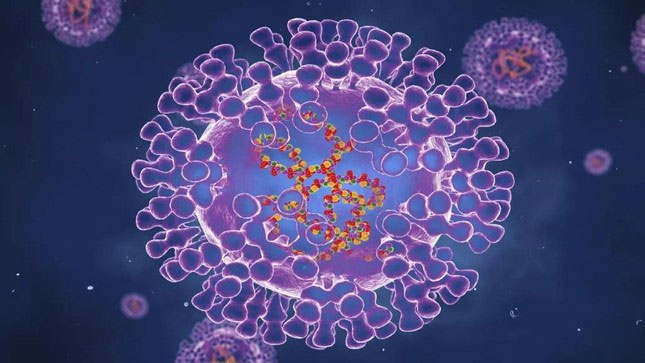A new study published on June 24 reveals that the monkeypox virus mutates 12 times faster than the typical virus and may undergo rapid evolutionary changes.
To date, this virus has infected over 3,500 people across 48 countries since it was first identified outside Africa, potentially producing dozens of new variants.

Monkeypox Virus.
According to a new study published on June 24 in the journal Nature Medicine, a total of 50 new variants have emerged since it was first detected in the period from 2018-2019. Meanwhile, scientists previously believed it could only produce one to two variants each year.
Monkeypox is a rare disease that virologists believe may circulate among monkeys and rodents. This year, the outbreak of monkeypox has spread rapidly across Africa, astonishing scientists and prompting the World Health Organization (WHO) to consider whether it should be classified as a global health emergency.
In this new research, the scientists express concern over the surge in monkeypox virus variants exceeding normal levels. Their data reveals new insights into the future evolution of the virus and its potential adaptation in humans.
Historically, monkeypox is transmitted from person to person through close skin contact, body fluids, contaminated materials, or respiratory droplets in the air. However, the unprecedented rate of transmission may suggest how it has altered its host and that these variants could be a contributing factor. These variants may be among those that have previously faced resistance and carry multiple variants within their short lifespan.
So far, no direct treatment has been tested, but doctors are still using antiviral medications and antibodies extracted from individuals immune to the monkeypox vaccine to treat patients.


















































